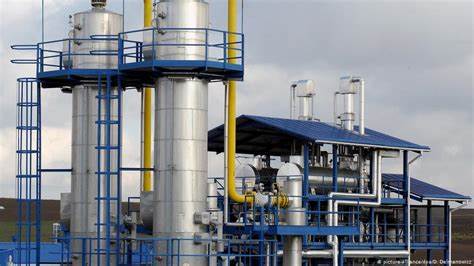Danish energy player Energinet revealed that the Baltic Pipe went into full operation on Wednesday, 30 November 2022. The commissioning of this gas pipeline is the culmination of years of preparations and construction work across the North Sea, Denmark, and Poland. In the past three years, Energinet laid 210 km of pipeline in the ground across the country and almost 110 km on the seabed.
In addition, the firm also expanded a receiving terminal for gas in Western Jutland and built a new compressor station in Southern Zealand. Multiple challenges were encountered during this project, including bad weather, the COVID-19 pandemic and an environmental permit, which was withdrawn and had to be re-applied for.
Søren Juul Larsen, Project Director for Baltic Pipe, commented: “In Energinet, we are used to large construction projects. Nevertheless, I would like to say that Baltic Pipe has been unusually complicated, among other things due to the challenges we were affected by and due to the size and complexity of the project. Along the way, we have crossed motorways and streams.
“We have passed through areas of protected nature, areas of wildlife and ancient monuments, which we of course had to protect. We have worked with approx. 550 landowners in 13 municipalities because the pipeline runs across their land. In some places, the construction work lasted longer than planned.”
Furthermore, the preparations for the Baltic Pipe project have been in progress for several years. In line with this, Energinet and Poland’s GAZ-SYSTEM gas transmission company were granted EU funds in 2015 to start the preliminary studies for a Danish-Polish connection. The connection, named Baltic Pipe, was included on the EU list of PCI projects (Projects of Common Interest). Come 2018, Energinet and GAZ-SYSTEM made the final investment decision, and the actual construction work began in 2019.
The Baltic Pipe project was commissioned with partial capacity on 1 October after the pipelines in the North Sea and in the Little Belt were pressure tested and the gas pipeline was pressurised all the way to the Nybro terminal. In Zealand, the pipe was pressurised from the Great Belt to the new compressor station in Everdrup and from Everdrup to Faxe, from where the gas would be sent through the Baltic Pipe to Poland.
The receiving terminal of the Baltic Pipe project – located at Varde in Western Jutland, Denmark – was put into operation on 1 November 2022, enabling it to receive gas from Norway, which could be sent to Poland via the Danish gas system. This was previously expected on 1 October, however, Energinet had to postpone the commissioning three times due to technical challenges.
The last sections on land, in East Jutland and in West Funen, where the work was long at standstill, were to be completed in November 2022. Afterwards, this was expected to be tested and ready for full operation at the end of the month. In preparation for the Baltic Pipe project to reach its full capacity, a temporary shutdown of the pipeline was initiated on 28 November 2022.
Energinet highlighted that the gas pipeline is now ready to send gas at full capacity, which is up to 10 billion cubic metres of gas per year (BCM/a), strengthening the security of supply in Poland and the countries connected to Poland by gas pipelines.
Torben Brabo, Director of International Relations in Energinet, remarked: “It’s a huge day for us in Europe. After a very intense process, we have reached the target and can open the valves on Baltic Pipe. The war in Ukraine and the resulting energy crisis have – unfortunately – underlined the importance of this project.
“By constructing the new gas pipeline, we are helping to fulfil Poland’s wish to become independent of Russian gas. Baltic Pipe also helps Poland transform its energy system from coal to natural gas, which is an important stepping stone on the road towards much more renewable energy.”
Moreover, the Danish energy firm underscored that approximately 80 per cent of the capacity in the Baltic Pipe is reserved for the next 15 years, but all gas suppliers, also in the Baltic States, Finland and Denmark, have the option of bidding on the available capacity in the pipeline and supplying Danish consumers with gas from Norway.
“There has been excellent cooperation across the countries, and we can build on this when we are going to work even closer together on energy and the expansion of renewable energy in future. Cross-border cooperation is not only a necessity in order to overcome the energy crisis, but also to ensure that we achieve a safe and efficient green transition,” concluded Brabo.
Source : OffshoreEnergy















